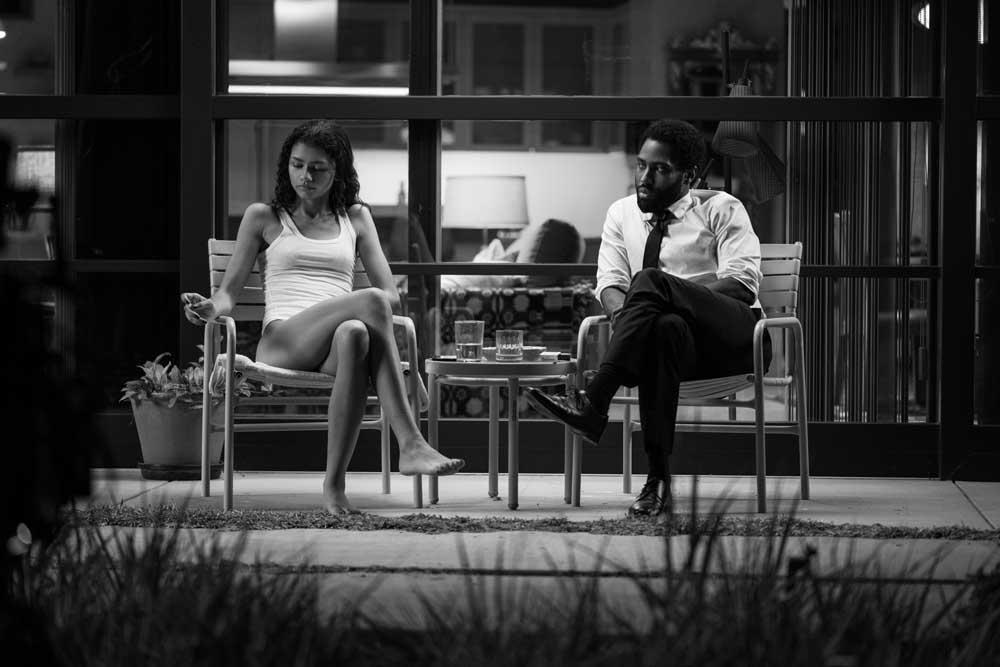Movie review: ‘Malcolm and Marie’
Published 1:45 pm Wednesday, February 10, 2021

- Zendaya and John David Washington in a scene from "Malcolm and Marie."
Writer-director Sam Levinson flips the bird to critics in the Netflix original “Malcolm and Marie.”
The two-hander — conceived, written, filmed and edited all during quarantine — stars John David Washington and Zendaya (who is incredible) as the title characters who return to their cool, modern glass house after the premiere of Malcolm’s latest film, which he wrote and directed. He’s on the highest high, streaming James Brown over the home’s surround sound system while Marie sets off first for the bathroom and then for the kitchen, where she boils water to make Kraft macaroni and cheese.
Malcolm waxes on about how the crowd loved it, how the critics ate it up and the white reviewers called him the next insert-name-of-Black-filmmaker-here.
He laughs at their ignorance, their avoidance of comparing him to someone like William Wyler instead relegating him to another director of color.
Soon he realizes that while Marie is listening, she’s not nearly as excited as he is about the night.
As it turns out, Malcolm forgot to thank her during his speech before the screening. She’s upset but mentions that nothing good would come out of anything said that night.
While this line is foreshadowing the events to follow, it’s also foreshadowing the effect the film has. Nothing good comes out of it.
The couple begins arguing about everything from credit, Marie’s past addictions and transgressions and Malcolm’s motivations for sticking with her, coming down to moments of some levity and clarity for both of them in between shouting matches that would wake the neighbors, if they had any.
But the crux of the film, instead of being about Malcolm and Marie’s five-year relationship — which does feels reasonable and authentic — is more about the interpretation of art and filmmaking.
Levinson, a white filmmaker who had recent success with “Euphoria” on HBO, throws his characters into a constant ebb and flow of arguing and hurting one another. But what’s said is not constructive to their relationship; instead, most of it involves Malcolm railing on the state of criticism in the film industry notably against white critics, specifically a woman at the Los Angeles Times who gave him a bad review once.
It’s frustrating to try and sit through one lengthy monologue after another with arguments that feel more petulant than a constructive exploration of filmmaking, Black filmmakers and the question of authenticity. And there is a lot that can be argued about criticism in the film industry, but Levinson misses the point every single time.
Malcolm doesn’t necessarily delve into the state of their relationship. Instead Washington is used as a conduit to deliver the scathing remarks Levinson wants out there, seemingly laying out that he and the film are above reproach in some way. He feels like that guy in the MFA film program that you just want to slap across his face when he tries to lecture you on Quentin Tarantino.
Add in the fact that the film is far too long, which makes it even more uninteresting and nearly unwatchable.
It’s loquacious and impassioned, but the powerhouse performance can’t save this battle from being too self-absorbed in its metatheatrics to allow “Malcolm and Marie” to stick to the viewer.
“Malcolm & Marie”
106 minutes
Rated R for pervasive language and sexual content
2 stars






